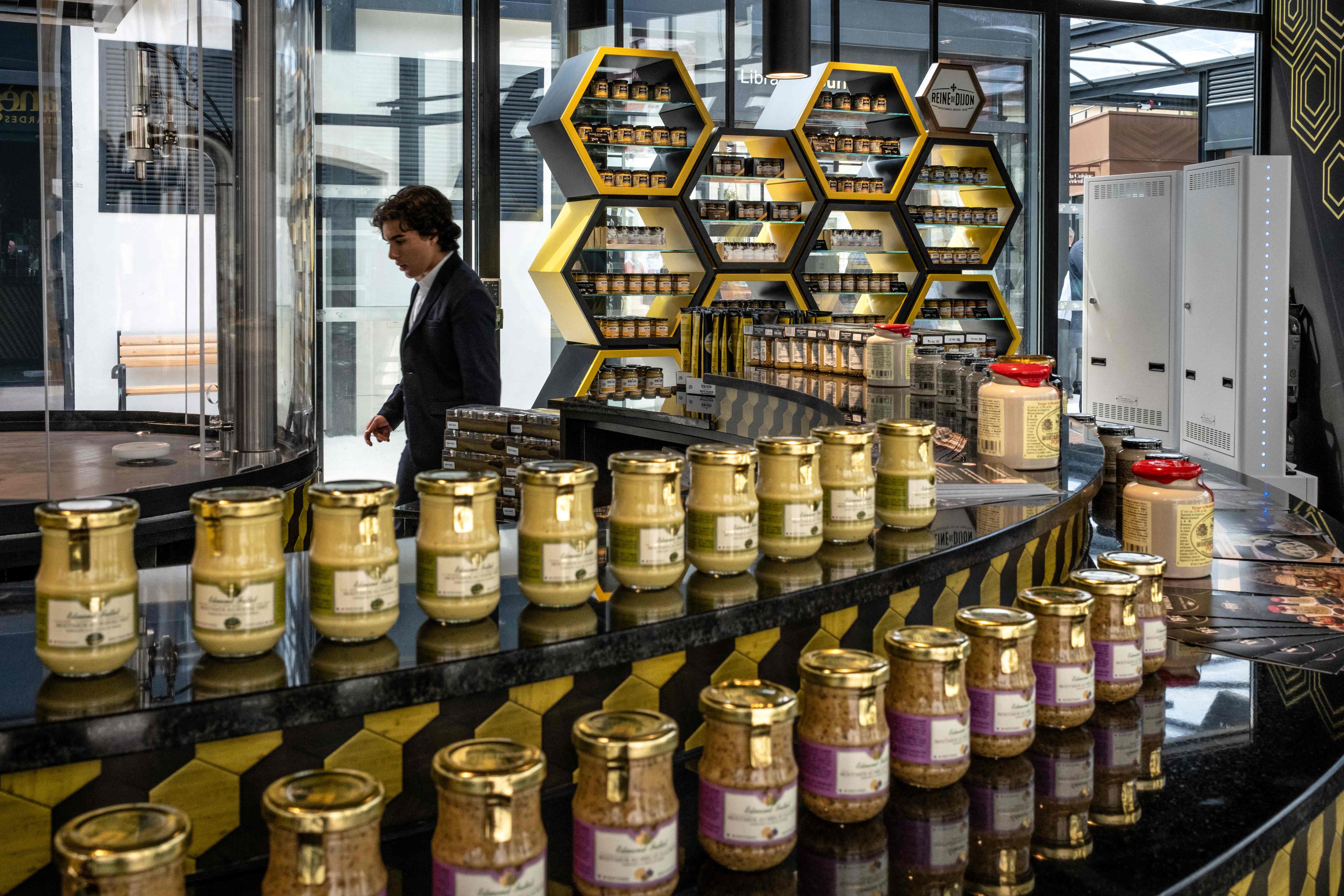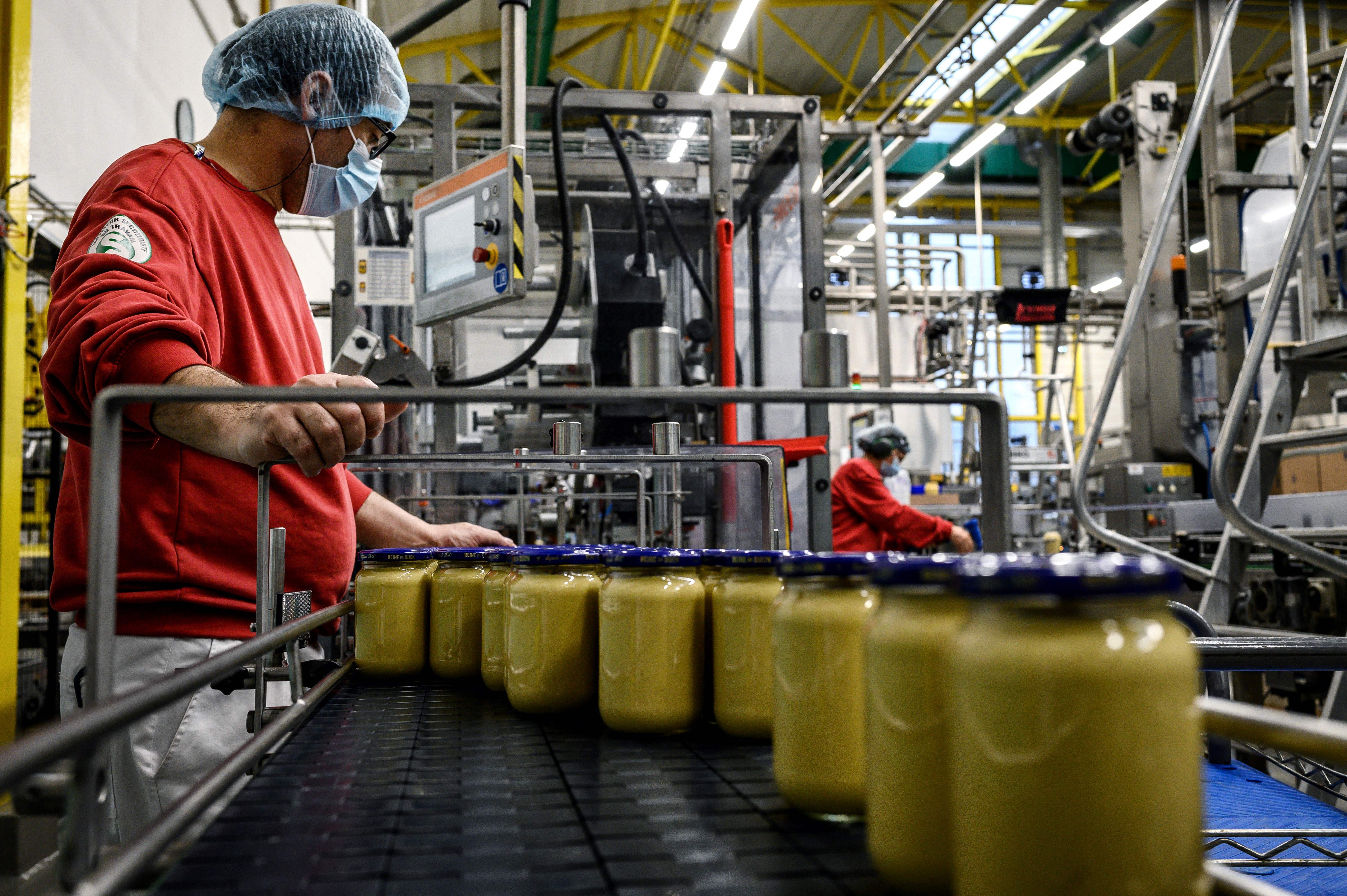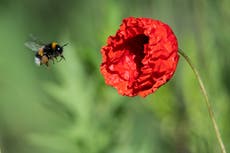France’s Dijon mustard shortage leaves sour taste
Supplies of popular condiment running low on supermarket shelves as ingredient shortfall sparks crisis

France has been hit by a disastrous shortage of Dijon mustard this summer, a living nightmare for a nation famed for its gourmet cooking and exquisite regional produce.
The problem was becoming apparent as early as last December, when French business news site BFM warned its readers: “Mustard lovers would do well to stock up. Mustard could well become rare as of January.”
Michel Liardet, president of Europeenne des Condiments, one of Burgundy’s top producers (alongside Amora-Maille, Reine de Dijon, Charbonneaux-Brabant and La Moutarderie Fallot), explained that a shortfall in the availability of a crucial ingredient was to blame.
“We have a very large deficit, the whole profession is in a state of extreme tension over the impossibility of obtaining supplies of mustard seeds, even if we meet the price,” he said.
While the acidic, pleasingly sour condiment continues to take its name from the capital city of the region in which it was first conceived, the reality is that French-made Dijon mustard has become ever-more dependent since the Second World War on imports of brown mustard seeds from Canada, a country that now accounts for approximately 80 per cent of the world’s supply, much of it grown in rural Saskatchewan.
But transatlantic trade in the seeds has suffered badly over the last year after Canada was hit by a desperately dry summer in 2021, peaking with the advent of a worrying “heat dome” that made headlines around the world.
Mr Liardet told BFM that his firm ordinarily imports 8,000 tonnes of brown mustard seeds a year but had only been able to buy up 100 tonnes by December as prices skyrocketed.
By May, the enforced reduction in manufacturing led to the national stockpiling the site had anticipated, inspiring horror and dismay in the supermarket aisles and good-natured mockery on social media.
While brown mustard seeds have been grown in Burgundy since the ancient Romans, who first planted them to enrich the soil for the cultivation of grape vines used in the production of white wine, the region’s farmers gradually began to pivot towards more lucrative cash crops over the last half-century, notably rapeseed, which is used in livestock meals and cooking oil.
That led its mustard producers to seek the majority of their seeds overseas in the interest of securing a steady supply line, a strategy that worked nicely until the gradual depletion of Canadian stocks began to become apparent over the last two years.
Canadian production fell from 135,000 tonnes in August 2020 to 99,000 tonnes a year later and is expected to get worse, with the authorities forecasting a further 28 per cent decline in summer 2022 to 71,000 tonnes.
“Exports are expected to be rationed and carry-out stocks are expected to drop sharply,” the Canadian Department of Agriculture has cautioned.
Making matters worse has been Russia’s invasion of Ukraine, given that the Eastern European nation plays a pivotal role in the continent’s agricultural sector and is one of the biggest producers of white mustard seeds, as used in English varieties, a shortage that has further ramped up demand for the already-dwindling Canadian alternative.
One further complicating factor is that, unlike Champagne and Roquefort blue cheese, Dijon mustard does not enjoy protected status because the product is recognised by its recipe, not the specific geographic region from which it originates.

“There are no rules keeping the production of Dijon mustard in Dijon,” Sophie Mauriange of the Institut National de l’Origine et de la Qualite told the BBC.
“You can make it anywhere in the world… As far as we know, there is almost no production of mustard in Dijon itself, save a very small amount at Fallot’s Dijon shop [a specialist delicatessen whose history in the city is relatively recent, having started out in nearby Beaune in 1840].”
Grey-Poupon – the famous brand founded by Maurice Grey, inventor of the steam-powered seed mill, and his business associate August Poupon – is now owned by Kraft and has actually been manufactured in the US since 1940, for instance, while Amora-Maille has been produced in Chevigny-Saint-Sauveur since 2009 following its acquisition by Unilever.
Although there are no immediate fixes to the present shortage, some positive news is that renewed demand is likely to further encourage the return of mustard seed planting in the Burgundy countryside, where monks and later powerful agricultural cooperatives once capitalised on its earth – naturally fertilised by coal residue– to allow the crop to thrive, paving the way for the establishment of a culinary classic.
New problems may continue to emerge, like erratic and unreliable weather patterns caused by the climate crisis and infestations by parasitic pollen beetles known as meligethes, but neither stopped French news outlet 20 Minutes reporting in late July that this year’s domestic yield is expected to be up 50 per cent year-on-year.
“There will be mustard on the shelves again around November,” pledged Luc Vandermaesen, general manager of Reine de Dijon, no doubt with a heavy sigh of relief.
Join our commenting forum
Join thought-provoking conversations, follow other Independent readers and see their replies
Comments


Bookmark popover
Removed from bookmarks